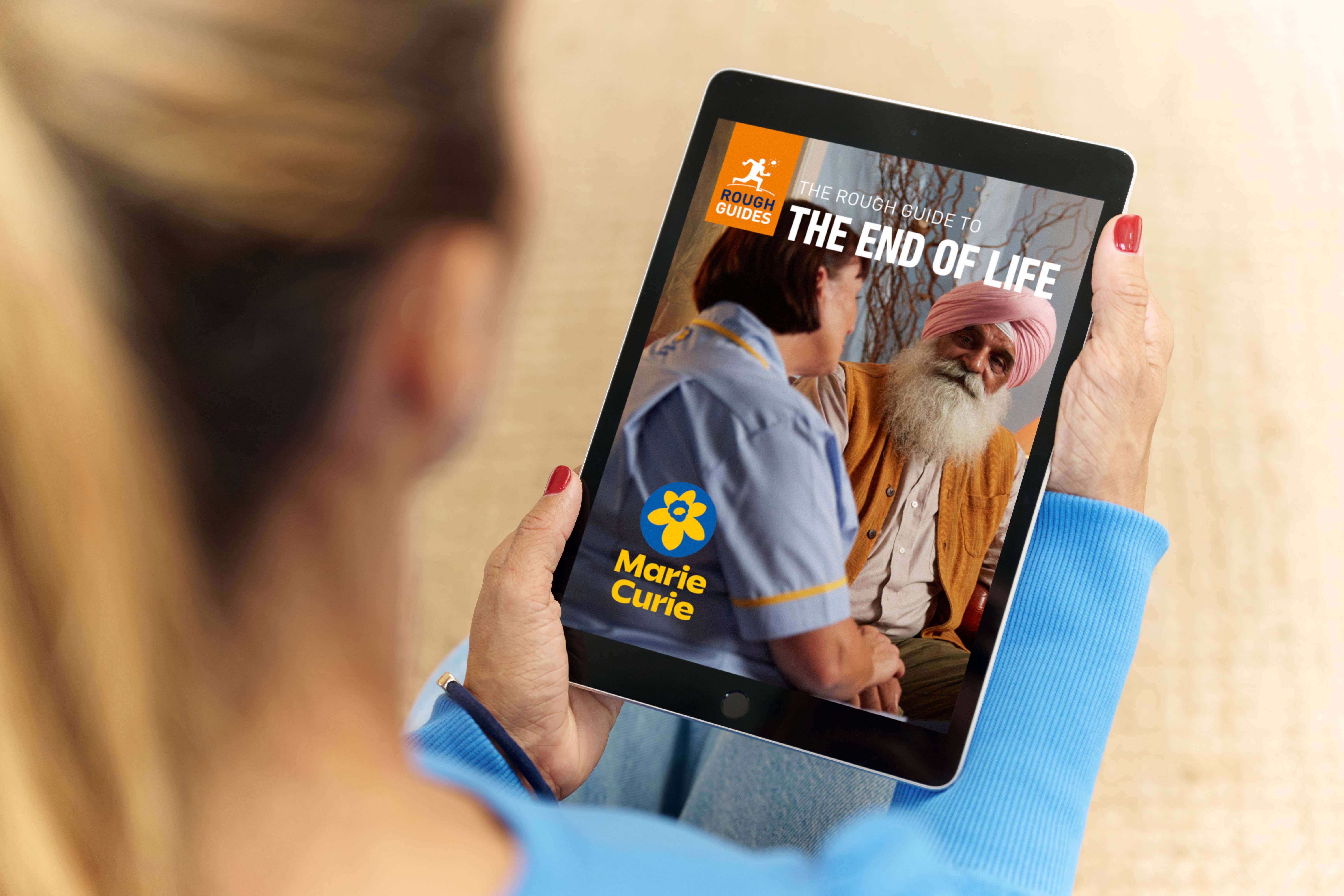UK’s first end-of-life Rough Guide aims to help people on their final journey
The downloadable guide is a joint project between Marie Curie and travel publisher Rough Guides.

Your support helps us to tell the story
From reproductive rights to climate change to Big Tech, The Independent is on the ground when the story is developing. Whether it's investigating the financials of Elon Musk's pro-Trump PAC or producing our latest documentary, 'The A Word', which shines a light on the American women fighting for reproductive rights, we know how important it is to parse out the facts from the messaging.
At such a critical moment in US history, we need reporters on the ground. Your donation allows us to keep sending journalists to speak to both sides of the story.
The Independent is trusted by Americans across the entire political spectrum. And unlike many other quality news outlets, we choose not to lock Americans out of our reporting and analysis with paywalls. We believe quality journalism should be available to everyone, paid for by those who can afford it.
Your support makes all the difference.A renowned travel publisher has partnered with Marie Curie to produce the first-ever UK guidebook for the “end-of-life journey”.
The Rough Guide To The End Of Life aims to provide practical advice for people to ensure they have access to the right care and support, with the Marie Curie charity saying research has suggested many people are not well-informed about the subject.
In her foreword, Marie Curie chief medical officer Dr Sarah Holmes said the free book should help people “prepare for whatever’s around the corner”.
The Rough Guide To The End Of Life is a physical demonstration of the support and guidance we provide for many people and families. We hope it becomes an invaluable family resource
The Rough Guides publisher is well-known for its travel manuals but Dr Holmes, who is a palliative care doctor, said: “Like any journey, life eventually comes to an end – for all of us. It’s something we know in our hearts, even though it can be hard to think and talk about.”
The downloadable guide states that the charity is “committed to ensuring the best end-of-life journey for all”, and aims to help people with planning – ranging from making a will, to funeral preferences to what to do with social media and online accounts after someone’s death.
It also includes information on advance care planning, pain management and do not attempt cardiopulmonary resuscitation (DNACPR) decisions.
Marie Curie, which cares for people suffering from any illness they are likely to die from including advanced cancer, Parkinson’s and Alzheimer’s, said polling by Opinion Matters of just over 2,000 adults across the UK last month suggested many people lack knowledge on the issue.
Almost four in 10 (38%) of people said they do not know what support and services are currently available in the UK, while half said they had given little thought to planning ahead if they were to receive a terminal diagnosis.
Dr Holmes said: “The uncertainty can be what’s truly scary. And when we have a chance to understand what may be down the road, to talk about our fears and discuss our questions with people who can help, the relief can be huge.”
Our guides have supported millions of travellers over the decades, but we could not think of a more important journey than helping people to navigate their final chapter of life
Maria Novell, chief innovation, income and engagement officer at Marie Curie, said: “The Rough Guide To The End Of Life is a physical demonstration of the support and guidance we provide for many people and families.
“We hope it becomes an invaluable family resource that shows people who are affected by any terminal illness that we’re there for them.
“By being better prepared and knowing how to access the right care and support services, whether for you or a loved one, will help improve a person’s chance of having a good end-of-life experience.”
Kate Drynan, senior editor at Rough Guides, said: “Our guides have supported millions of travellers over the decades, but we could not think of a more important journey than helping people to navigate their final chapter of life.
“We are proud to have partnered with Marie Curie on this important campaign and hope the first The Rough Guide To The End Of Life gives support to many.”
Last week groups which came together under the Coalition of Frontline Care for People Nearing the End of Life called for better healthcare staff training to see more people “live well and die well at home”.
The groups, including Care England, the British Geriatrics Society and the National Care Forum, wrote to Health Secretary Steve Barclay to urge a change in approach, insisting the current system is not working and will get worse with an increasingly older population.